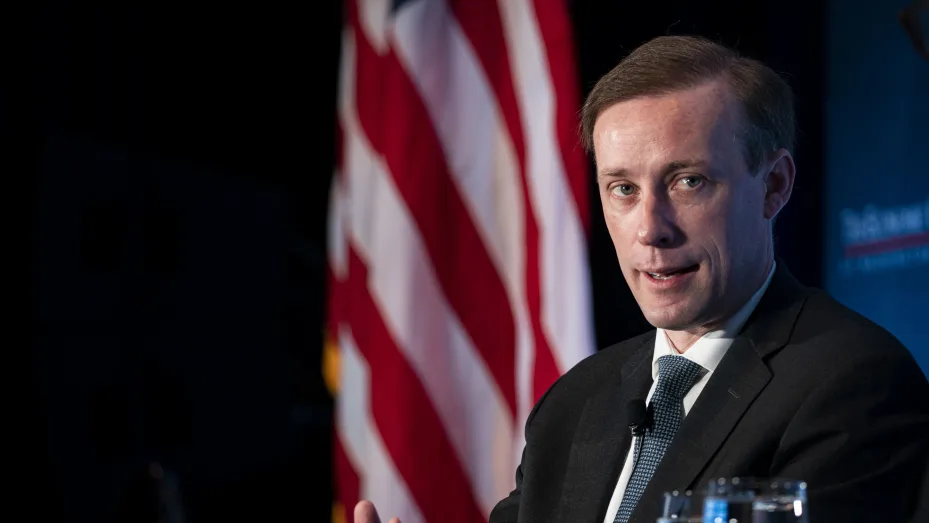
Jake Sullivan, White House national security adviser
WASHINGTON, June 14 (NNN-AGENCIES) — US national security adviser Jake Sullivan has raised concerns with China’s top diplomat Yang Jiechi over Beijing’s veto at the United Nations of a US-led push to impose more sanctions on North Korea, a senior US official said.
Washington has warned that North Korea’s first nuclear test since 2017 could happen at “any time”. China says it does not want to see that happen, which is partly why in May it vetoed a bid to impose new UN sanctions on Pyongyang over renewed ballistic missile launches.
A senior US administration official told reporters during a briefing on a four-and-a-half-hour meeting between Sullivan and Yang in Luxembourg on Monday that the United States believed Beijing and Washington could cooperate on the North Korea issue.
“Jake raised concerns, in particular, about the veto, which comes following a significant series of ballistic missile launches in violation of previous UN Security Council resolutions and the preparations … for potential nuclear tests,” the official said.
“Each side laid out their positions and the way we see the situation, and certainly Jake made very clear that we believe this is an area where the United States and China should be able to work together,” the official said.
A White House statement said discussion during the meeting was “candid, substantive, and productive”.
US Secretary of State Antony Blinken said on Monday that Washington will maintain pressure on North Korea until Pyongyang changes course, following a meeting with his South Korean counterpart who urged China to persuade the North not to resume nuclear testing.
A readout by China’s Xinhua news agency on the meeting did not go into details on what was discussed, only saying that the two sides had exchanged views on international and regional issues such as the “Korean Peninsula nuclear issue”.
Xinhua said Yang had in the meeting raised how China-US relations were currently in a “very difficult situation” with the US “insisting on further containing and suppressing China in an all-round way”. He urged cooperation, Xinhua added.
The Sullivan-Yang meeting follows a late May call between the two officials after which Sullivan said it was possible President Joe Biden and Chinese leader Xi Jinping could speak soon, though no such engagement has been announced.
The official said the United States and China were maintaining high-level communication, including a meeting between US Defense Secretary Lloyd Austin and his Chinese counterpart Wei Fenghe at the Shangri-La Dialogue defence forum in Singapore on Friday.
“I’d expect to see additional potential meetings in the months ahead, but nothing specific planned at this time,” the US official said when asked if a Xi-Biden meeting or call had been discussed.
The White House said in an earlier statement on the Luxembourg meeting that the United States sought to keep lines of communication open with Beijing to manage bilateral competition.
Relations between China and the United States are at their lowest point in decades, as the two countries spar over difference on Chinese-claimed Taiwan, China’s human rights record, and what Washington says is Beijing’s growing economic and military coercion around the world.
Just this Sunday, China’s defence minister vowed China would “fight to the very end” to stop any independence bid by Taiwan. This followed Biden’s statement during a visit to Japan last month that the United States would defend Taiwan if it came under attack – a break with Washington’s decades-old policy of “strategic ambiguity”.
An administration official said Sullivan reiterated the US policy of recognising Chinese sovereignty but expressed “concerns about Beijing’s coercive and aggressive actions across the Taiwan Strait”.
Despite the disputes, dialogue is valued for “maintaining open lines of communication”, the official said.
“We think about it not necessarily in terms of specific agreements but rather in terms of ensuring that each side understand one another’s intentions, one another’s priorities,” he said.
“This is critical to avoiding potential miscommunication, misinterpretation, reducing risks.”
Relations entered tense new territory under Biden’s predecessor Donald Trump, who triggered a trade war in response to what he described as China’s abusive trade practices.
Biden says he is considering lifting some tariffs in an attempt to defuse roaring inflation at home. — NNN-AGENCIES





